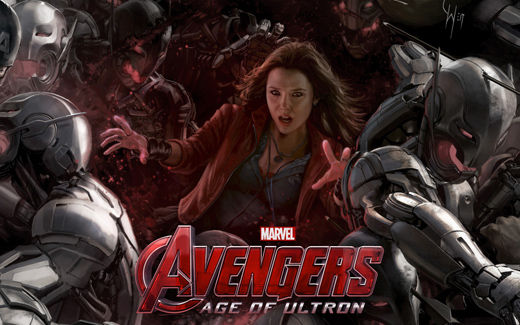
Recently leaked emails between the CEOs of Marvel Studios and Sony have generated waves of controversy. The exchange, a conversation between Marvel’s Ike Perlmutter and Sony’s Michael Linton, was one of the 30,000 documents recently published by Wikileaks from this year’s Sony hack. In one email, Perlmutter explains to Linton why doing a female-centric superhero film is a bad business idea. In other words, that it makes no sense to make Marvel movies featuring women in starring roles. The assertion has created an uncomfortable atmosphere, with some fans left outraged.
In Perlmutter’s email, titled “Female Movies,” he offers evidence to Linton why the idea is such a bad one, by citing three female-led superhero films that were critical and box office failures. First, he says, “Elektra,” a 2005 film not currently part of Marvel’s shared cinematic universe, was a “very bad idea, and the end result was very, very bad.” Next he cites the 2004 DC Comics film Catwoman, starring Halle Berry in the title role, remarking, “Catwoman was one of the most important female characters in the Batman franchise. This film was a disaster.” And finally, he reaches back to the 1984 film Supergirl – quite a last-resort example, for reasons I’ll soon explain – and notes, “Supergirl was one of the most important superheroes in the Superman franchise. Again, another disaster.”
Perlmutter’s criticism doesn’t quite hold up for a number of reasons. Elektra was a spinoff of a previous film, the Ben Affleck-starring 2003 film Daredevil, which itself was a critical flop and a career embarrassment for Affleck. Catwoman was simply a bad film, mostly due to its director’s desire to completely extricate it from the Batman universe and make it entirely different from its source material. These differences ended up being seen as poor artistic decisions, and uninteresting characters and a lackluster supporting cast didn’t help it much. And Supergirl, a quasi-spinoff of the Christopher Reeve Superman films, came out at a time when superhero movies were sparse in number, were not taken seriously (critically or by audiences), and were qualitatively hit-or-miss. Citing it as an example in today’s radically different climate – one in which comic book movies have tapped into our cultural zeitgeist – does not strengthen Perlmutter’s argument, it weakens it.
The argument, moreover, is a fallacious one, because there have been more male-starring comic book films that have been poorly received than female-centric ones. Cases in point include the aforementioned Daredevil, but also most infamously the 1997 movie Batman and Robin, widely considered one of the worst films ever made and a deep regret for George Clooney, who had portrayed the Dark Knight. Superman Returns was a semi-remake of the series starring the famous Man of Steel, a role in which Brandon Routh was cast. It was mostly seen as a bad movie and a failure, and it took nearly seven years before DC dared try again with the much better reboot Man of Steel. Since then, Routh has moved on to better things, starring as the Atom on the CW’s Arrow and making a number of subtle self-deprecating references to his prior role. And 2011’s Green Lantern was seen as a “nice try,” but still a rather ridiculous film and something actor Ryan Reynolds does not recall fondly. The list goes on, and exceeds – by far – the number of female counterparts.
This needless and continuous dismissal of women in superhero films extends beyond a mere email exchange; it’s something that has plagued the comic book community for some time now. The email leak comes on the heels of recent controversy over actors Chris Evans and Jeremy Renner (Captain America and Hawkeye, respectively, in the new Avengers sequel). The two were asked during an interview about how they felt about Scarlett Johansson’s Black Widow being romantically involved with Mark Ruffalo’s Bruce Banner in the new movie, to which Renner jokingly responded, “She’s a slut.” Evans laughingly added, “I was about to say something along that line; she’s a complete whore.” The replies were intended to be in good fun, rather than any sort of negative comment about the actress who portrays the character, but many couldn’t help but feel a nasty, unpleasant sort of undertone there. If combined with the fact that Marvel Studios also opposed ideas to make a solo Black Widow film (much to Johansson’s disappointment), and these recent emails, it does not paint a pleasant picture of how Team Marvel views women.
Think Progress challenged Marvel’s position and quickly pointed out the fact that major action films starring women have broken box office records and been well-received – and these are examples that did not hyper-sexualize or objectify the leads in order to do it. The Hunger Games series, starring Jennifer Lawrence, was a major success, with a total haul of over $2.3 billion to date, and the sci-fi series Divergent has totaled over $561 million.
There are signs on the horizon that things are changing for the better. DC is working on a Wonder Woman film (Gal Gadot has been cast as the titular Amazon warrior), which will share a universe with the upcoming Batman v. Superman. They are currently seeking a female director. And Marvel, in part thanks to nudging from Avengers director Joss Whedon, has plans for a female Captain Marvel movie. While there’s no word yet on who will fill that role, fans are loudly calling for Katheryn Winnick, who portrays shieldmaiden Lagertha on the History Channel’s Vikings, to be cast.
And females are becoming more prominent in comic book series on television. Arrow is notable for having a strong female cast, while a TV adaptation of Supergirl (certainly destined to be better than the ’84 film) is coming this fall, and Marvel is planning a Netflix series featuring superheroine-turned-lawyer Jessica Jones. Over at DC, there’s even talk of another Arrow spinoff featuring the Huntress.
As was proven a decade ago for male-driven films of this type, it only takes two or three good movies for Hollywood to get the picture and run with it. Perhaps the upcoming offerings will shift the paradigm on both the executive and public levels. It’s unfortunate that this dilemma, as with any other in a capitalist system, is about convincing Marvel Studios execs that taking a risk on a superheroine movie won’t hurt their wallets. As for the deeper, underlying anti-women sentiments present in some of these developments, that can only be challenged when enough fans make their voices heard. But if reactions on Twitter are any indication, perhaps that process has already begun.

MOST POPULAR TODAY

High Court essentially bans demonstrations, freedom of assembly in Deep South

Zionist organizations leading campaign to stop ceasefire resolutions in D.C. area

U.S. imperialism’s ‘ironclad’ support for Israel increases fascist danger at home

UN warns that Israel is still blocking humanitarian aid to Gaza







Comments